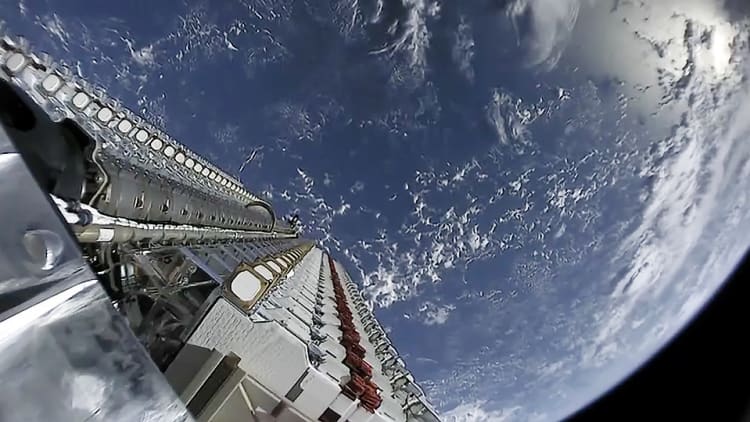A large broadcast satellite — owned by AT&T's DirecTV, built by Boeing and operated by Intelsat — suffered major damage to its batteries in December and is now at risk of exploding.
DirecTV disclosed the issue in a special request to the Federal Communications Commission this week, asking for permission to remove its Spaceway-1 satellite from orbit.
"Spaceway-1 suffered a major anomaly that resulted in significant and irreversible thermal damage to its batteries," DirecTV said in the filing. "There is a significant risk that these battery cells could burst."
The satellite is notably several years beyond its intended lifespan. Launched in 2005, Spaceway-1 is a Boeing 702-model satellite, a build that is typically expected to last 12 years.
"The battery malfunction occurred in the course of beyond-contract-life operation after a collection of events that have a very low likelihood of occurring on other satellites," Boeing said in a statement to CNBC.
But DirecTV is now under a time crunch, as a Boeing review of the satellite's data found Spaceway-1's batteries "cannot be guaranteed to withstand the pressures needed to support safe operation of the spacecraft in eclipse operations." Spaceway-1 is currently relying on solar power but, with the satellite set to pass into Earth's shadow on Feb. 25, the company said Spaceway-1 must be taken out of orbit and decommissioned. Additionally, the satellite should discharge its remaining fuel, the company said, "to reduce the risk of accidental explosion."
AT&T said in a statement to CNBC that it will replace the satellite with another one from its fleet.
"We do not anticipate any impacts on consumer service as we retire it," AT&T said.
Until December, Spaceway-1 served as a back-up to provide television coverage to customers in Alaska. Boeing said that, to reduce the risk for other satellites of this model, it will provide "affected customers with a minor update to operating procedures that will allow them to avoid a similar malfunction going forward."



